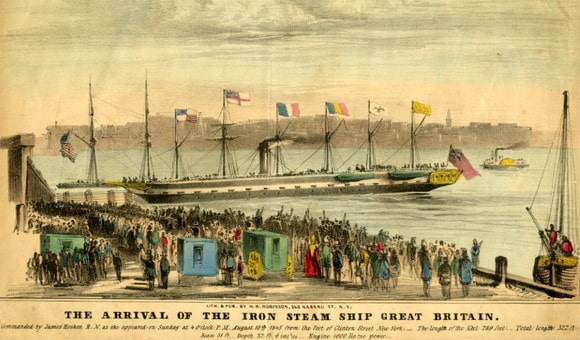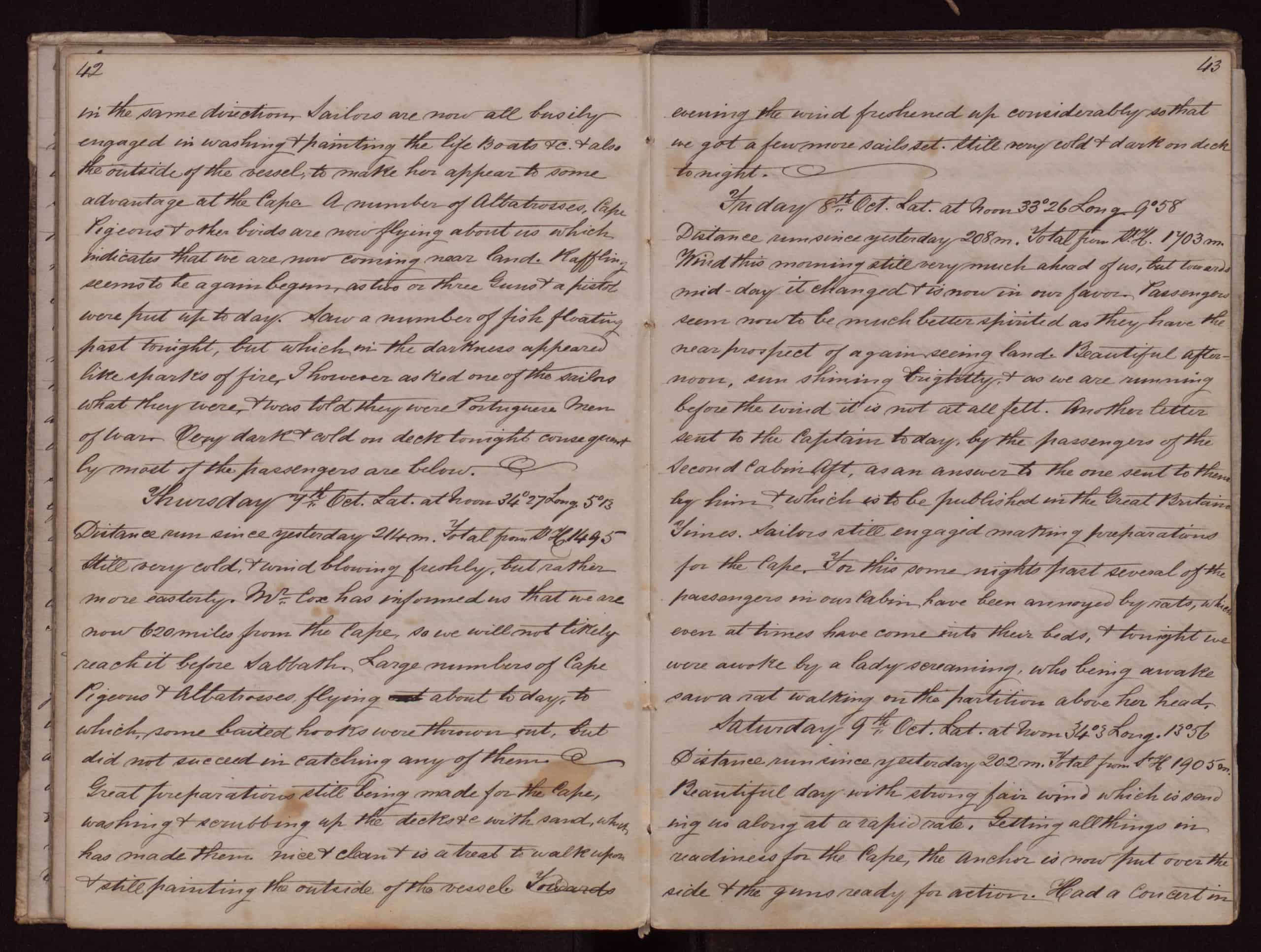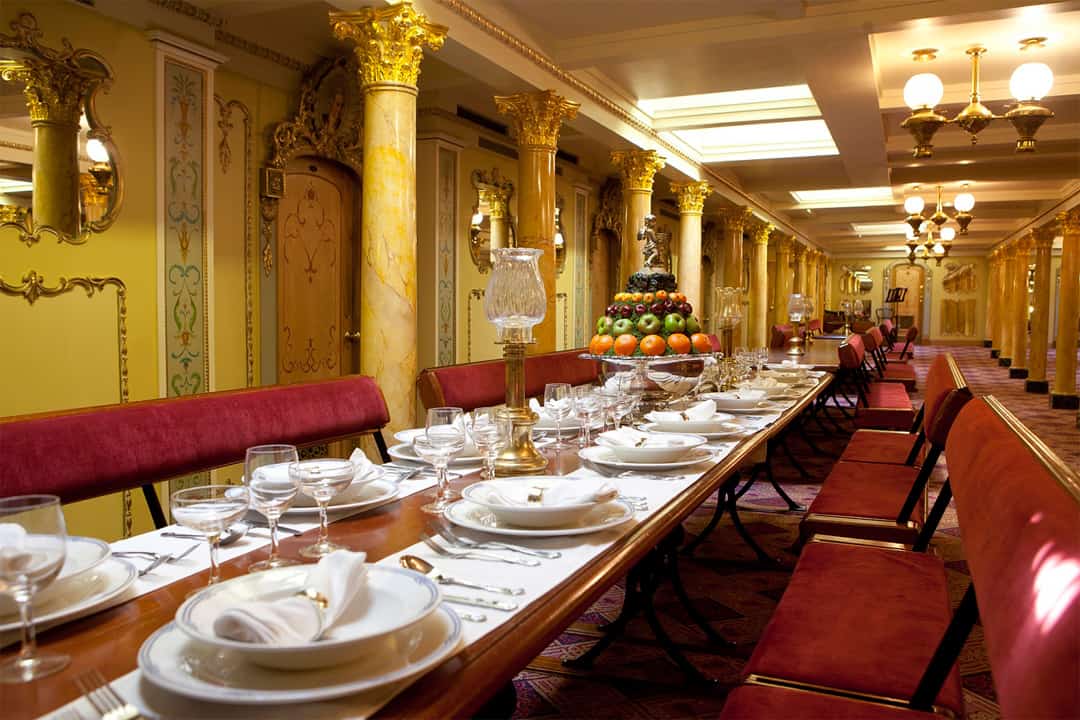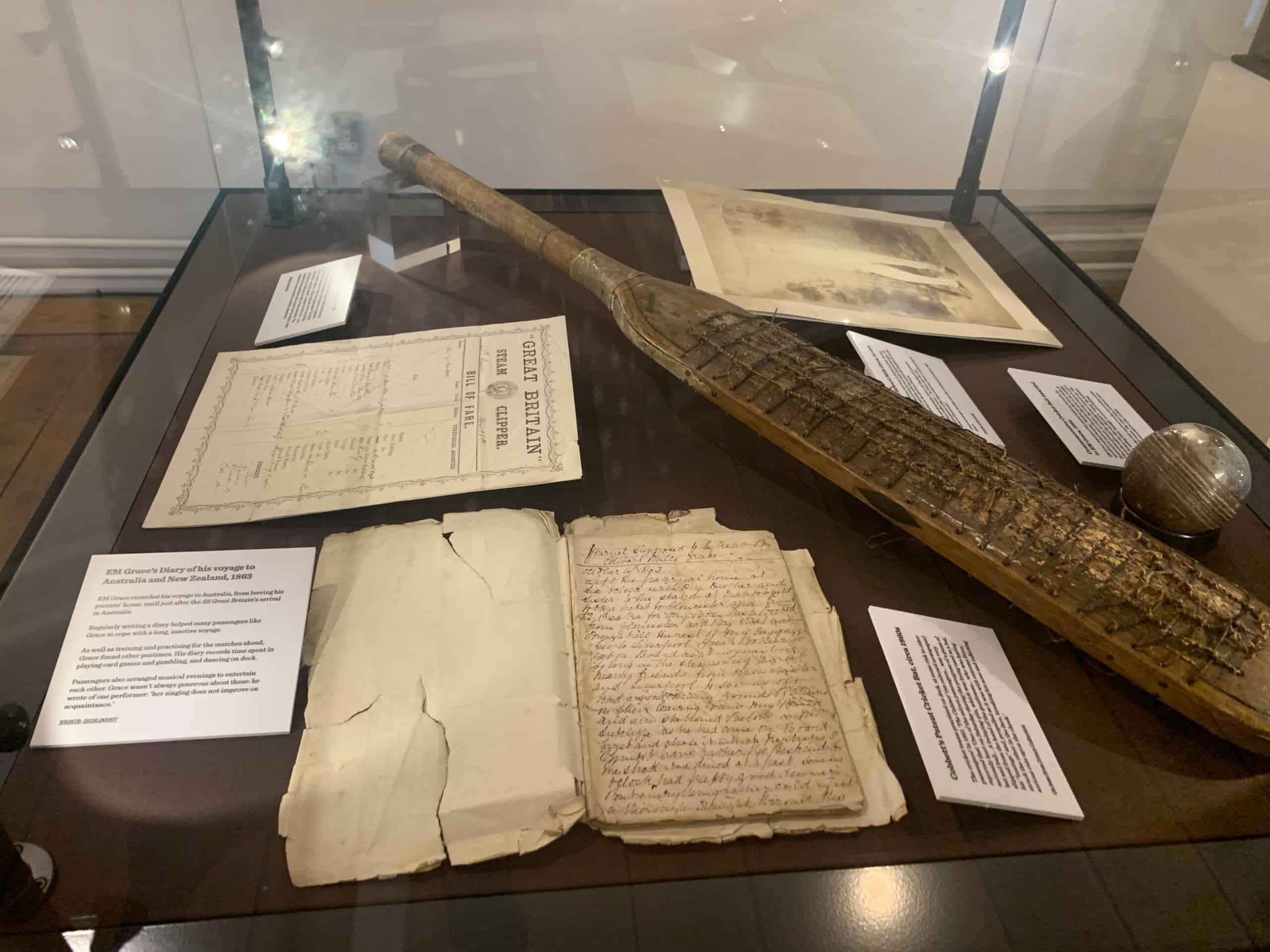Edward Towle
ALL HUMAN (AND ANIMAL!) LIFE IS HERE
In her days as an emigrant steam clipper the SS Great Britain often carried over 600 passengers. Many were hoping for a better life in Australia, most answering the call of the gold found near Melbourne. The experiences of these pioneers were recorded in diaries and letters, dozens of which survive for us to enjoy today.
Edward Towle and his brother Ben were second class passengers who travelled to Australia in 1852, in the hope of finding work either in sheep-farming or by prospecting for gold. They would have paid between 25 and 40 guineas each for their tickets for the three-month voyage.
Whilst on board Edward often wrote to his sister Mary in Derbyshire, UK.
His diary and letters show the wide range of passengers who shared his world. They also show a cheeky sense of humour!
On 22 August 1852 he writes:
“Opposite to our berths lies a wild Irish man, a genteel looking fellow but always in fun he appears to be like his compatriots all impulse and as unstable as the water upon which we float. Above him lies a surgeon, a serious but rather soft looking chap we shall see what he is made of presently.”
later:
“There seems to be a great mixture of characters on board, men who had been gambling the night before now appeared at church with a most devotional demeanour, and others who appeared to be very steady and sedate never went to church at all… We have French, Germans, Poles, Jews, Italians, Scotch and Irish on board.”
NON-HUMAN PASSENGERS
Fresh meat, milk and eggs for the journey were supplied by the many live animals onboard. One passenger made a list, including: one cow; three bullocks; 150 sheep; 30 pigs; 500 chickens; 400 ducks; 100 geese; and 50 turkeys.
Edward also wrote about the animals on 3 September 1852:
“We are awoke in the morning by the crowing of cocks and cackling of ducks, the hens are dying off, partly by the heat and partly by the commands of the captain….we have our meals much more regular, the provisions improve and we had a plum pudding yesterday, a great treat after salt provisions. Six pigs were butchered this morning, their dying screams were the music that greeted us during dinner.”
Extracts from Edward’s diary can be seen in Dockyard Museum and the originals items are available in the Brunel Institute.







